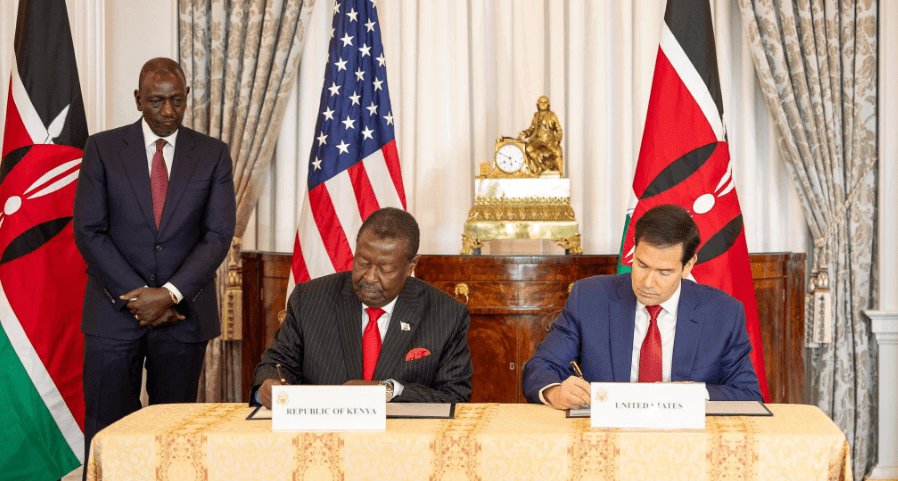 Participants at the Agitech Grand Expo in Mwea, Kirinyaga County.
Participants at the Agitech Grand Expo in Mwea, Kirinyaga County.Kenya’s agricultural sector, the backbone of the country’s economy, is under growing pressure to modernise as it contends with erratic rainfall, rising production costs, and shrinking arable land.
Despite contributing about a quarter of the national GDP and employing millions, the sector continues to face challenges that threaten food security and livelihoods.
It was against this backdrop that Yara East Africa, one of the country’s leading agricultural solutions providers, marked its 30th year of operations in Kenya on Thursday during the Agitech Grand Expo in Mwea, Kirinyaga County.
The company used the occasion to unveil new fertiliser blends and outline a long-term plan to help farmers cope with the evolving agricultural landscape.
The new products, including nitrate-based fertilisers designed to improve soil health and increase yields, are part of wider efforts to support sustainable and climate-resilient farming.
Demonstration plots and digital learning platforms showcased during the event illustrated how data and precision farming can help farmers use fewer inputs while improving productivity.
Speaking at the anniversary, Yara East Africa Country Manager William Ngeno said the company’s 30-year journey had been defined by partnerships with farmers and continuous innovation.
“When we started, Kenya faced frequent fertiliser shortages and limited knowledge on soil nutrition,” he said. “Over the years, we have worked with farmers, researchers, and government agencies to develop crop-specific solutions and promote practices that protect both yields and the environment.”
Ngeno said the company had invested in local blending plants and farmer training programmes to ensure a reliable fertiliser supply and improve soil management.
“Our goal now is to deepen that work, to see every farmer understand their soil, apply the right nutrients, and build resilience against climate shocks,” he added. “Transformation in agriculture is no longer optional. No country has reached middle-income status without first transforming its farming systems.”
He noted that agriculture offers vast opportunities for young people, particularly in value addition and agro-processing, but warned that progress depends on addressing persistent structural gaps such as access to finance, reliable irrigation, and modern storage.
“Kenya’s youth should see farming not as a fallback but as a business,” he said. “With the right support, agriculture can create thousands of decent jobs and drive inclusive growth.”
The company is a subsidiary of global agricultural solutions leader Yara International.
Kenya’s agricultural performance has improved in recent years, buoyed by recovery in key subsectors such as livestock and food crops. However, recurrent droughts, pest outbreaks, and high input prices continue to limit growth. Most smallholder farmers still rely on rain-fed production, leaving them vulnerable to climate change.
As the country seeks to strengthen food security, stakeholders are calling for stronger public–private collaboration, investment in research, and policies that encourage sustainable production.
















